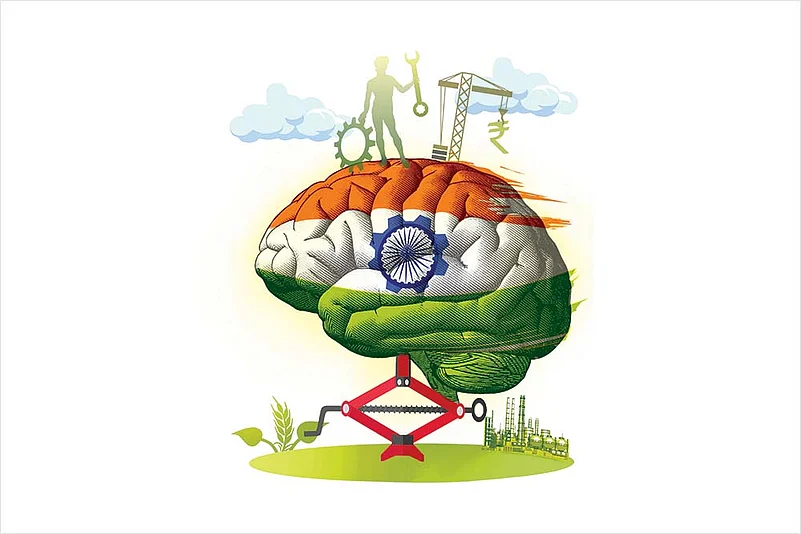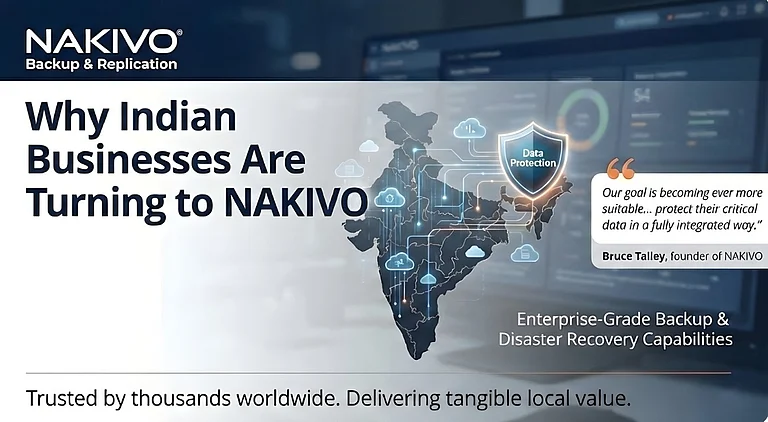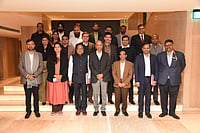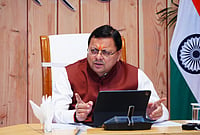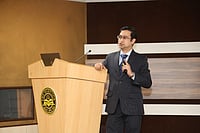HEIs can become catalysts of innovation by fostering research consortia, encouraging collaborative projects and sharing best practices, writes Prof. TG Sitharam. The country has been focusing on innovation, and we are focusing on building indigenous jet engines, accelerating breakthroughs in frontier technologies such as Artificial Intelligence (AI) and deep tech. India’s vision of Swadeshi is not confined to high-end technology as it extends to everyday choices of citizens.
To transform this vision into action, India’s educational institutions, industries, and rural communities must collaborate closely. Higher Education Institutions (HEIs) can become catalysts of innovation by fostering research consortia, encouraging collaborative projects, sharing best practices, and optimising resources through platforms such as I-STEM. Flexibility in learning, exposure to local culture and livelihoods, and active alumni mentorship can create an ecosystem where students do not just learn but also ideate and innovate.
Specifically, AICTE-approved institutions can play a pivotal role in advancing the Swadeshi mission. They can organise structured activities such as 'Swadeshi Innovation Weeks,' annual hackathons focusing on local challenges, industry-academia conclaves, and exhibitions of indigenous products and student innovations. Initiatives such as Toycathon, launched under the 'Vocal for Local' campaign, have already shown immense success in boosting indigenous toy design and manufacturing, thereby strengthening India’s cultural identity while generating new entrepreneurial opportunities. Similarly, AICTE’s Cybersecurity Hackathons, conducted in collaboration with I4C and NCCIP of the Ministry of Home Affairs, are building national capacity in critical technologies and addressing real-world cyber challenges, ensuring that the nation’s security infrastructure remains robust and self-reliant.
Projecting the Innovation
Institutions may adopt a quarterly format for showcasing projects through fairs, digital showcases, and community outreach programmes, while also encouraging monthly seminars, expert talks, and innovation challenges to maintain momentum. To ensure visibility and wider impact, activities can be documented and shared on institutional websites, AICTE’s official platforms, regional media, and national forums such as the National Internship Portal, Smart India Hackathon showcases, and academic conferences. By institutionalising a calendar of Swadeshi-focused activities and celebrating local success stories, AICTE institutions can inspire students, attract industry partnerships, and create a replicable model for other educational ecosystems across the nation.
At the school level, the spirit of Swadeshi must be fostered at an early age. With innovative pedagogies, skilled teachers embracing technology, and the integration of vocational training, children can be prepared not just for jobs but for entrepreneurship and local enterprise. Rural-focused incubators, workshops, and youth challenges can further inspire them to solve community problems while reviving indigenous knowledge systems.
In this direction, the Viksit Bharat Buildathon 2025, launched by the Ministry of Education, will engage over 1 crore students from 1.5 lakh schools across the country. Students will ideate, design, and develop STEM and non-STEM prototypes around four key themes—Atmanirbhar Bharat (Self-Reliance), Swadeshi (Indigenous Products), Vocal for Local (Promoting grassroots products), and Samriddhi (Prosperity).
By fostering design thinking and problem-solving at a young age, the Buildathon will strengthen India’s innovation culture and channel the creative energies of students toward national priorities, laying a strong foundation for the vision of a Swadeshi, Se Samriddh aur Viksit Bharat.
Boosting Self-Reliance
To support this movement at scale, national frameworks must also evolve. A National Research Priority Committee could align funding, patents, and fellowships with the mission of Viksit Bharat by 2047. Initiatives such as the introduction of 100% indigenous curricula in emerging technologies like AI, semiconductors, and green hydrogen, alongside clusters linking academia with local MSMEs, would ensure that self-reliance is firmly embedded in both education and industry. Reverse brain drain fellowships, virtual tech laboratories, and public–private centres of excellence could further accelerate this transition.
Equally important is the preservation and promotion of India’s cultural and craft heritage. Reviving Indian Knowledge Systems (IKS), supporting Geographical Indication crafts, and developing region-specific skills can strengthen employment opportunities while safeguarding traditional practices. A cultural-tech incubator blending heritage with modern design—for instance, AI-assisted Kanchipuram textiles or solar-powered khadi weaving—can showcase how tradition and innovation can work together to drive the economy forward.
The roadmap for such a transformation requires careful phasing. In the first two years, select institutions and districts could serve as pilots for incubators, virtual labs, and cultural-educational initiatives. Within three to five years, the model could expand nationwide through systemic interventions, such as credit banks, mental wellness programmes, and rural engineering clusters. By the end of a decade, India could achieve a robust ecosystem where indigenous products, deep-tech mastery, and community-driven development will coexist, building a truly self-reliant society.
The following content is authored by the Chairman of All India Council for Technical Education (AICTE).






